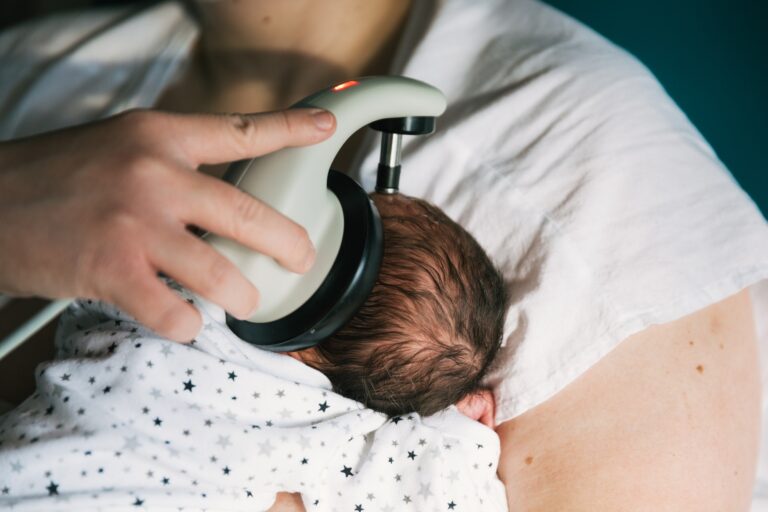
Understanding Patent Ductus Arteriosus: Causes, Symptoms, and Treatment Options
In the intricate realm of cardiovascular health, certain conditions demand our attention, and Patent Ductus Arteriosus (PDA) stands

“How long does postpartum depression last?” is a crucial question, as it affects women and their families significantly. Postpartum depression, characterized by profound sadness, anxiety, and despair, typically begins within four weeks after childbirth but can emerge months later. The duration varies widely among women, ranging from a few months to over a year, and in severe cases, even longer without treatment. Understanding its longevity, and symptoms, and seeking professional help is vital for maternal well-being. This article explores postpartum depression’s duration and available recovery options.
Postpartum depression is a significant mental health concern that can manifest in new mothers in the period following childbirth. According to multiple research studies, the duration of postpartum depression varies greatly among individuals. Variability in duration is attributed to physiological responses, history of depression, social support, and treatment adherence.

Postpartum depression manifests in a multitude of ways, and it affects different women differently. However, some common symptoms can serve as red flags.
Dealing with postpartum depression can be a daunting task, but it’s crucial to remember that there are numerous effective treatments available. Recovery varies for each woman, involving self-care, support, and professional treatment.

Self-care practices like a healthy diet, exercise, sleep, and relaxation can manage symptoms and improve mood. These lifestyle factors have been shown to positively affect mental health and may contribute to a faster recovery.
Professional treatment methods, such as psychotherapy and medication, are often needed to adequately address postpartum depression. Therapy equips women with tools to manage symptoms and adjust to their new roles as mothers. In some cases, medication might be necessary and can be highly effective when supervised by a healthcare professional.
Building a strong support network is a vital aspect of recovery from postpartum depression. Friends and family can provide a safe space for new mothers to express their feelings, ask for help, and receive understanding and comfort.
Regularly communicating feelings and experiences with trusted friends and family members can be extremely therapeutic. It provides an outlet for emotional expression and can also help others better understand the challenges being faced.
Practical support, such as assistance with baby care and other responsibilities, can also alleviate some of the pressure on new mothers. Practical help provides respite and reminds the new mother she’s not alone; support is available.

Emotional support from friends and family can boost the morale of new mothers and help them navigate through the difficult times. Feeling understood, loved, and supported can provide a strong pillar of strength throughout the recovery journey.
Professional support is often a crucial element of the recovery process from postpartum depression. Healthcare providers can offer specialized help and resources that are designed to treat this specific form of depression.
Postpartum depression is a complex, multifaceted condition that varies significantly among individuals in both duration and severity. Postpartum depression duration and severity can be influenced by various factors, including a history of mental health issues. Women who have previously experienced bouts of depression or anxiety disorders are more prone to developing postpartum depression. Physiological and psychological vulnerabilities in women may be triggered by hormonal changes, physical strain, and emotional adjustments during pregnancy. Stressors related to parenting a newborn, such as sleep deprivation, can further compound these challenges.

Engaging in open, candid conversations with your healthcare provider about feelings of depression or anxiety is critically important. If experiencing sadness, anxiety, lack of interest, inform your healthcare provider promptly. Early intervention is a key strategy for managing postpartum depression. Your healthcare provider can help you understand the symptoms and potential treatments, which may include psychotherapy, medication, or a combination of both. They can help assess your condition objectively, differentiating between common mood fluctuations and postpartum depression symptoms.
In severe cases, postpartum depression can lead to thoughts of suicide or self-harm. During a crisis or struggling with such thoughts, emergency support options are crucially available. Share your feelings with a trusted person or seek help from a mental health professional or crisis center. Various hotlines provide immediate support, such as the National Suicide Prevention Lifeline in the United States, which is available 24/7. Don’t hesitate to call 911 or go to an emergency room if you believe that you are in immediate danger. Postpartum depression is a serious condition, but with the right support and treatment, you can navigate through this challenging time and move toward recovery.
Postpartum depression is a challenging illness, often extending several months and sometimes even years beyond childbirth. Its duration is not set in stone, varying significantly among individuals. It’s shaped by numerous factors, including personal history of mental health, the severity of symptoms, and the quality of support and treatment received. However, it’s crucial to remember that despite its duration and intensity, this form of depression is not a permanent state. With appropriate professional care, a strong support network, and potentially medication, you can manage the symptoms and eventually recover.
If you’re experiencing postpartum depression, you’re not alone. Many women share this experience, and it’s crucial to reach out and seek help if you’re struggling. There is a wide array of resources available, from healthcare providers to support groups, and mental health hotlines for immediate assistance. Be patient with yourself. Recovery might take time, but each step you take toward seeking help is a step toward wellness. It’s paramount to keep hope alive, as postpartum depression, while difficult and often prolonged, is entirely surmountable. You have the strength, and with the right support and treatment, you can reclaim your joy and equilibrium.
1. How long does postpartum depression last?
Postpartum depression can vary in duration for each individual. On average, it can last anywhere from a few weeks to several months. In some cases, it may persist for up to a year or longer if left untreated. It is important to seek professional help and support to effectively manage and overcome postpartum depression.
2. What factors can influence the duration of postpartum depression?
Postpartum depression duration varies based on symptom severity, mental health, support system, treatment access, and intervention effectiveness. Additionally, seeking timely medical and psychological assistance can significantly impact the duration of postpartum depression.
3. How can I shorten postpartum depression duration?
While the duration of postpartum depression varies from person to person, there are steps you can take to potentially shorten its duration. Early professional help, therapy, support system, and self-care aid in managing and reducing postpartum depression duration.
4. Can postpartum depression last longer than a year?
Yes, postpartum depression can last longer than a year in some cases. While the majority of women recover within the first year after childbirth, there are instances where postpartum depression can persist for an extended period. For prolonged symptoms, seek medical attention and discuss treatment options with a healthcare professional.
5. How can I support a loved one experiencing postpartum depression?
Supporting a loved one experiencing postpartum depression is vital for their recovery. You can provide emotional support by listening without judgment, reassuring them that their feelings are valid, and encouraging them to seek professional help. Helping with chores, baby care, and accompanying to therapy aids their recovery journey.

In the intricate realm of cardiovascular health, certain conditions demand our attention, and Patent Ductus Arteriosus (PDA) stands

Guidance for Healthy Baby’s Growth Charting a birth plan is like GPS for natural childbirth—a guide for a
Pregnancy, often considered a period of joy and anticipation, can sometimes be fraught with complications. One such condition

Each parent envisions a healthy future for their child, including auditory well-being. Early identification of hearing impairments through